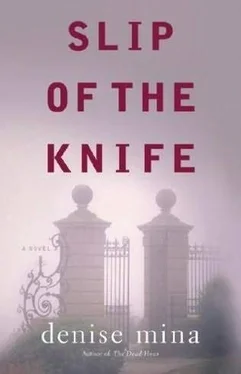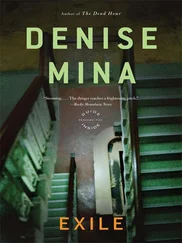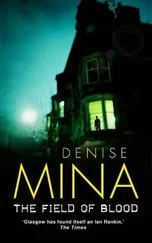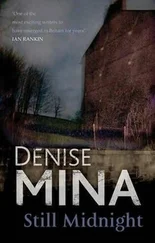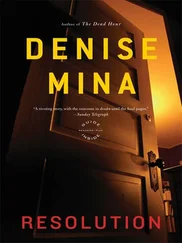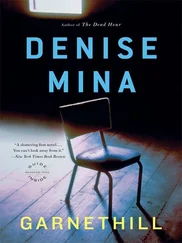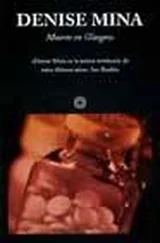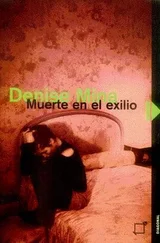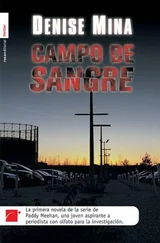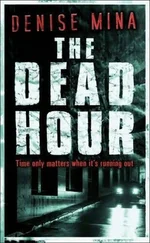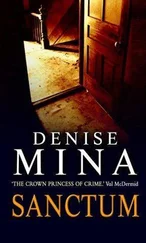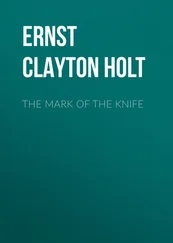“What are we going to do with you, my friend?”
“We can’t take him to ours,” she said.
“How no?” Callum was sitting in her warm car, his mouth was full of her dinner and neon orange juice, and he still sounded as if he’d been slighted.
“Because journalists were coming to our door looking for you before you even got out, and someone smashed the door in and pissed on our beds today. You want to sleep on that?”
Callum wasn’t sure whether to believe her but he looked to Dub and he confirmed it with a wrinkled nose. “We were lucky, though. I mean, they didn’t shit on them.” The way he said it was so ridiculous that Paddy started laughing and couldn’t stop: it sounded as if the guy had given them the option of one or the other. She laughed and looked at Callum, who was frowning at Dub until he caught Paddy’s eye and started laughing too, like a sad child out of practice, opening his mouth wide and pumping laughs out of his face. Dub was used to being laughed at. He had been a comic for a long time before he became a manager and he took it as a compliment, smiling and nodding at them, saying “it’s true” every so often. It reminded Paddy of her father. One of Con’s loveliest traits had been his willingness to be the butt of jokes; he let the children laugh at him when he was silly, smiled when other men ridiculed him.
When the hilarity had died down Dub turned to Callum, eyeing him as if he was measuring him up for a new suit. “Where are we going to keep this guy safe, then?”
Paddy looked back at Callum. He already looked nicer, softer and less wary of her. “Uff, I don’t know. Can’t take him to the Ogilvys’, or ours.”
“What about my mum and dad’s?”
Dub managed comedians for a living. The closest he had ever come to real danger was defusing an ego. His parents were indulgent but Paddy didn’t think they would appreciate him arriving with a famous murderer looking for a bed. And they only had two bedrooms, which meant that Paddy and Dub would be dumping him and leaving again. Callum was pleased by the suggestion though, possibly because it made him sound trustworthy.
“They are quite elderly,” Paddy said reluctantly, “a bit stuck in their ways, Callum. I don’t know if you’d like it there.”
“I like family units,” he said hopefully.
His face looked calmer now he wasn’t hungry, traces of the laughter still showed in his eyes, and as he leaned forward to answer them he held on to his shins, bending eagerly forward like a child discussing his Christmas present.
“Well, they’ve only got one room anyway and I think we should stick together. What about a hotel?”
“Nah.” Dub was certain. “The papers’ve all got reception paid off to tip them about anyone interesting.”
He was right.
“And we can’t go to one of my clients because they’re all publicity-hungry wankers and they’ll drop the dime.”
“‘Drop the dime’?” mimicked Paddy, and she and Callum laughed again, less because it was funny than because they had enjoyed it so much the first time.
“OK.” She started the engine. “We’ll go back to ours, pick up some stuff and go on to a place I know. We’ll get the sleeping bags, unless someone’s shat in them.”
They drove back across the Kingston Bridge, a high concrete arch over the river. The city lay spread out below them, bright and thrilling, and Callum sat, awestruck, with his face to the window, wondering at the lights.
A high white moon hung above the city and Paddy had the sense of skidding across ice to her doom, pausing to enjoy the slide.
She left the lights off in the hall, put the bits of wood that completed the front door on the floor, and went into the dark kitchen to call Sean. The answer machine caught the call so she told it she and Dub had found the package in question outside the supper shop, and were going to look after it for a while. See you tomorrow at the cathedral.
She crept into Pete’s room. He would need clean shirts for school, fresh underwear; there wasn’t that much at his dad’s house. He only ever stayed there for a night or so.
She held the neatly folded bundle of clothes and looked around Pete’s room. Dub made Pete’s bed every morning, plumped the pillows and pulled the duvet tight across the bed until it was a smooth marshmallow. The bed was still made; the whale mobile that hung from the ceiling spun slowly in the stirred air; his toys were all in order. Nothing was moved in here, the tracksuited ned hadn’t been in here. He must have come to the door and balked at smashing up a child’s bedroom. It gave her hope. She went into her own room, looked at the stain on the stripped bed, smelled the caustic tang of piss, and then remembered that he’d been at Pete’s school gates. There were no boundaries.
Frightened by the thought, she gathered black clothes for herself and Dub for tomorrow, pulled two tightly rolled sleeping bags down from the top of her wardrobe, remembering buying them in the scout shop with Pete when he and BC decided to sleep in Trisha’s garden for BC’s birthday. They’d come in after an hour because it was cold.
She got Dub’s funeral coat out of his cupboard. Her neat black coat was still in the plastic wrap from the dry cleaner’s and she folded it over her arm for Terry’s memorial service tomorrow. From the hall cupboard she brought out a torch and the round bowl of an old tin barbecue.
Laden, she stood in the hallway and looked back at the records scattered on the floor, at Terry’s silver trunk sitting on its lid, at the general mayhem he had caused to her perfect little house, and the feeling she got was how angry the ned was, how angry and frightened.
The road was quieter than it had been during the day but still some drivers careered around corners as if they were meeting a dare. On long stretches of dark road pinprick lights would appear behind them, filling the mirror a few minutes later, blinding her until she slowed to the side and let them pass.
Dub put the radio onto a pop station and Callum seemed to go into a trance, gazing out of the window at the moonlit countryside without seeing, his eyes steady during the whole course of a song. He didn’t speak unless he was spoken to, she noticed, and it made her feel sorry for him. One day they might talk to each other, a long time in the future, and he might tell her what had happened to him in prison.
She couldn’t quite remember where the turning for the house was so she slowed when she saw familiar hills, irritating a small car on the road behind her. The driver hooted at her to hurry up and Callum turned and looked out of the window. He said it was a really old guy who could hardly see over the steering wheel and he and Dub laughed at her for being so cautious.
She saw the turning up ahead, indicated carefully and took it, the impatient pensioner behind giving her a farewell-and-fuck-you toot on his horn as he passed behind them, making them all smile. When his lights had disappeared all they had to see by were their own headlights. The grass on the driveway had been flattened by Merki’s car but in the dark it seemed deeper and more impenetrable.
She drove on as far as she dared, realizing once they got out that she was much farther into the drive than Merki had gone. In the harsh moonlight the cottage was forlorn and ramshackle. They could almost smell the damp from outside.
Dub and Callum were unenthusiastic but she’d stopped at a garage and bought some bread and butter, some cans of juice, firelighters and smoke-free coal and promised them a fire when they got inside. Back at the house she’d had the idea that they might be able to use the old barbecue as a grate but it seemed a bit stupid now.
Читать дальше
